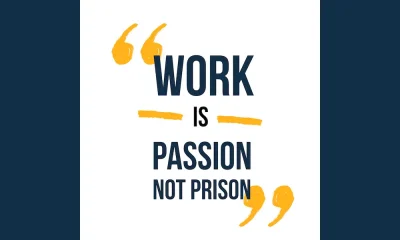Management
The Single Most Important Question in Business
As responsible business owners, we invest a lot of time answering the “what” question. What will I sell? What should my price be? What kind of marketing should I do?
As responsible business owners, we invest a lot of time answering the “what” question. What will I sell? What should my price be? What kind of marketing should I do?
We find “how” intriguing as well – How will I find clients? How will I make ends meet this month? And we’re even okay with “who” (who is my ideal client) or “where” (where do I locate, advertise, network, etc.?).
The ‘Who’, ‘What’, ‘Where’, ‘How’ & most important of all ‘Why’
All of these questions – who, what, where and how can be just plain fun to play around with. Why? (hint – this is a pretty important question) – Because they are largely theoretical questions. I can answer ALL of them brilliantly and do absolutely nothing – frozen in my tracks but feeling as if I’ve made great progress. But we’re really just playing office again. Merely doing complex (but easy) things that make us feel important and impress others.
The 2nd most important question in business (see last week’s post) is “when”. We avoid it like the plague because when we attach it to all the other questions (who, what, where, and how), we suddenly lose control of our future. Instead of managing our plans, we are now managed by our Plan, required to take action and move forward when we’d rather think about it and play office some more.
But the biggest, most important question in business is avoided even more then “when”. And it’s the most important question for determining our success.
Why?
On the most strategic level, if you don’t know why you’re in business, you’re going to fold when the going gets tough. And on the most tactical level, if you don’t know why you want to buy that snazzy new printer, you’re going to wonder why you can’t make money.
Just like with “when”, the “why” question should be attached to every other question you need to answer. What should I sell (why should I sell it)? What should my price be (why should it be that price)? How will I find clients (why do I want those clients)? Where should I locate (why is this a great place to be?)
And most importantly, “why” even needs to be attached to “when”. When do I want to be at 100 clients (why then and not later/earlier)? When do I want to have a fully mature business (why then and not later/earlier)?
When we ask why, we have a better chance of making decisions that are all aligned with each other and with our long-term plan. When we avoid asking why, we make individual decisions in individual vacuums and wonder how we ended up right where we started at the beginning of the year. The result – a business going many directions at once and going nowhere.
Why gives us clarity of purpose.
If you won’t ask why, don’t bother with the other questions. They are all mechanical questions and don’t matter outside of “why”.
Why are you in business? Why do you do business they way you do? Why do think it will take you 20 years to grow a mature business (why not 5)? Why do my customers buy from me? Why am I stuck at the same revenue as last year?
Why don’t you ask why more often?
Seth Godin wrote a book called The Dip in which he contends that one of the big problems in business is that we continue doing things that don’t give us good results – what he calls cul de sacs. And instead of quitting the cul de sacs that hold us back, we quit the “dips” – those times in business where things just get tough and if we just pushed through them, we would be successful. We quit when we shouldn’t and don’t when we should.
If we asked why more often in business, Godin, wouldn’t have had a book to write. Answering why helps wake us up to stupid habits that aren’t helping us but just make us comfy (or impressive). And more importantly, answering why we’re in business gives us the motivation to push through the dips, to move from survival, through success, to significance.
Every time you ask a who, what, where or how question, ask “when”, then ask “why”. You’ll make more money in less time. Why would that be true?






